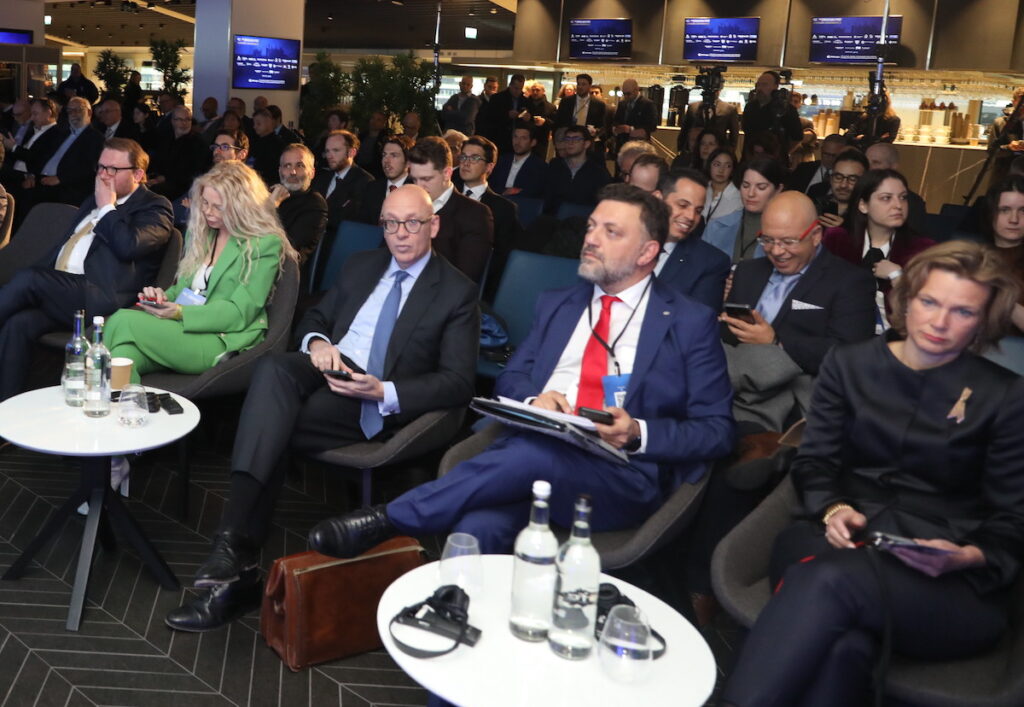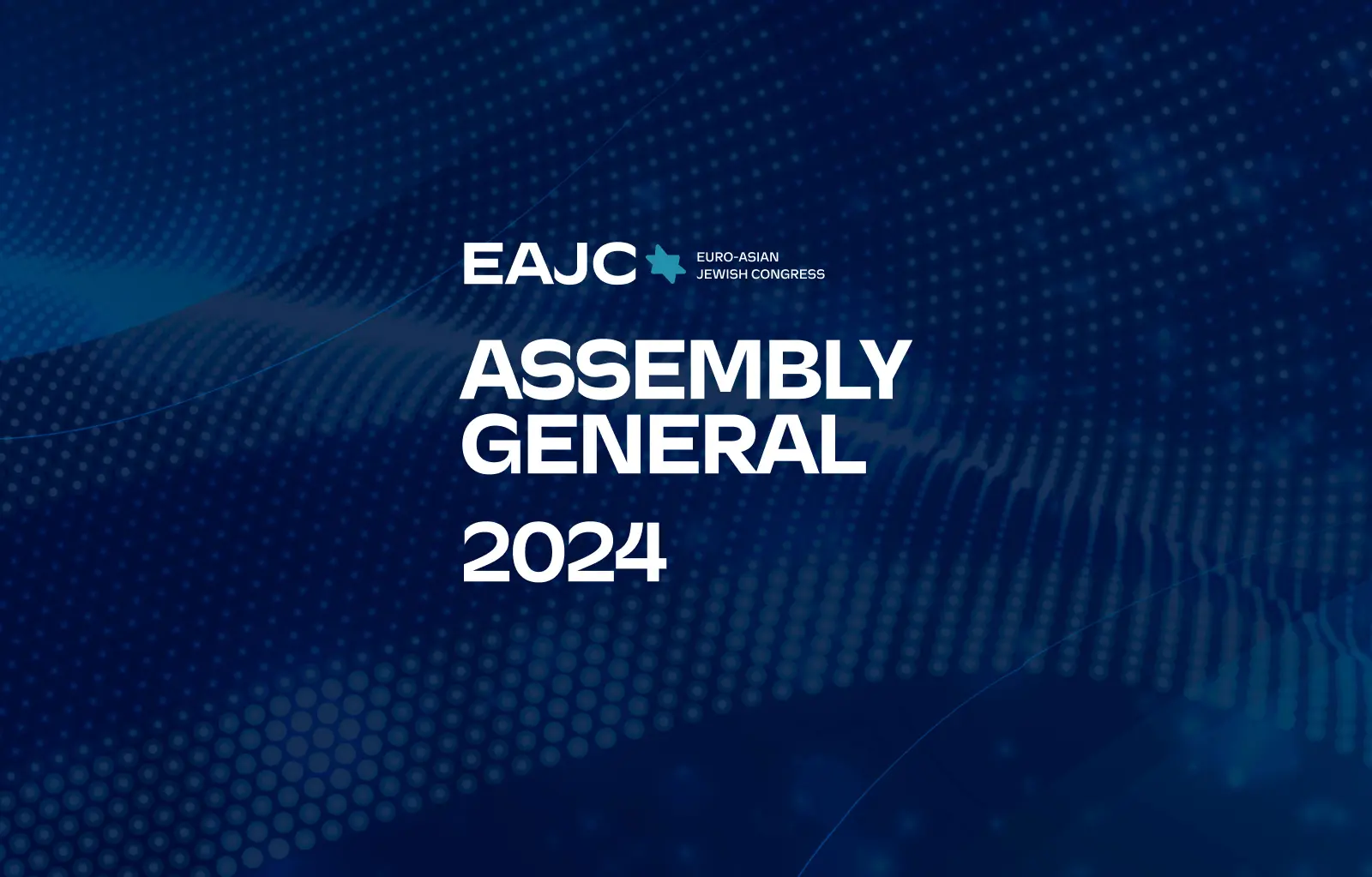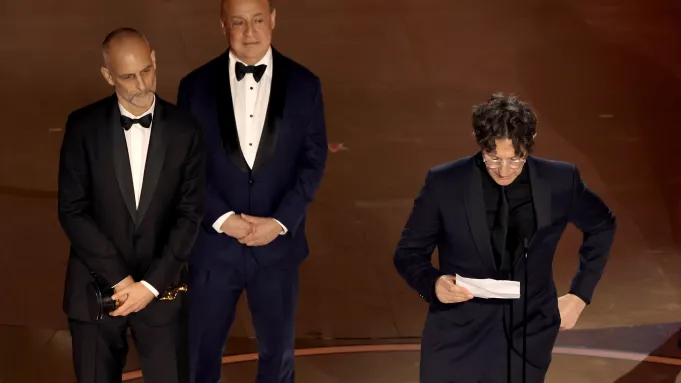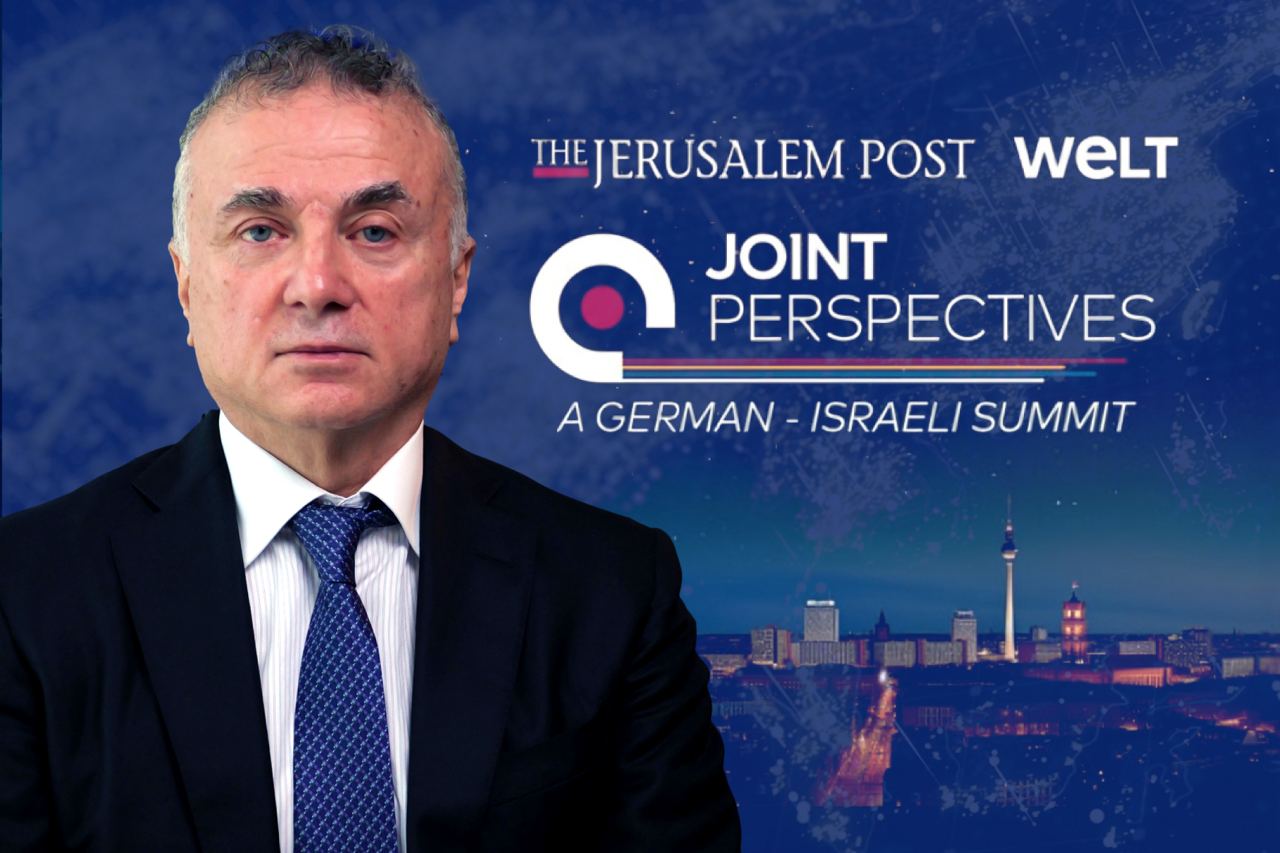- 03/04/2022

The Director General of the Euro-Asian Jewish Congress (EAJC), Dr. Haim Ben Yakov, participated in a round table on issues of anti-Semitism. The discussion took place within the framework of the Jerusalem Post international conference “Business, Sports and Tolerance” at the Tottenham Hotspur stadium in London.
During the round table, the EAJC Director General presented to the audience the monographic collection “Anti-Semitism, Tolerance and Historical Memory in the Post-Soviet Space”, published by the Institute of Euro-Asian Jewish Studies, which operates under the auspices of the Congress.
The public discussion was also attended by European Commission Coordinator for Combating Anti-Semitism and Promoting Jewish Life Katharina von Schnurbein, Commissioner of the German Government for Combating Anti-Semitism Dr. Felix Klein, Head of the Department for Combating Anti-Semitism and Maintaining the Sustainability of the World Zionist Organization Rachel Baratz-Rix , Deputy Special Envoy of the US State Department responsible for monitoring the situation with anti-Semitism and the fight against it Aaron Keyak, President and CEO of the United Jewish Federations of North America Eric Fingerhat, and the President of the American Yeshiva University, Rabbi Dr. Ari Berman.
According to the data given by Dr. Ben Yakov, before the outbreak of war in Ukraine, cases of physical violence were very rare in the former USSR. However, every year there were cases of vandalism against Jewish sites. All of these incidents were investigated by local law enforcement agencies.
However, most anti-Semitic acts in the post-Soviet space are verbal and are often not reported. These include anti-Semitic statements, the spread of conspiracy theories, and the denial or downplaying of the Holocaust.
In addition, researchers note the phenomenon of latent anti-Semitism. Often this factor comes to light when answering indirect questions of sociologists. “Latent” anti-Semitism is still classified by specialists as a powerful factor influencing Jewish communities in the world. For example, non-Jewish Russians are less sensitive to topics of anti-Semitism than their Jewish fellow citizens.
“Stereotypes and prejudices against Jews are still strong in post-Soviet societies and require careful observation and analysis,” said the EAJC Director General, “especially now, at a time of particular tension, it is important to closely monitor what is happening and be ready to quickly respond to urgent needs, challenges and needs.”
The Business, Sports and Tolerance Conference is the first international event of its kind at London’s Tottenham Hotspur Stadium, dedicated to economics, politics and the fight against anti-Semitism. It is attended by high-ranking Israeli and British officials, politicians, diplomats and businessmen. Among them are the President of the Euro-Asian Jewish Congress Dr. Michael Mirilashvili, the President of the World Jewish Congress, Ambassador Ronald. S. Lauder, Israeli Finance Minister Avigdor Lieberman, Israeli Interior Minister Ayelet Shaked, Head of the Bank of Israel prof. Amir Yaron, Israeli Minister of Communications Yoaz Hendel, Israeli Minister for Diaspora Affairs Nachman Shai, as well as other prominent politicians and entrepreneurs.
The conference was sponsored by the Euro-Asian Jewish Congress, the World Zionist Organization, the World Jewish Congress, the Jewish Agency for Israel and the Israeli Ministry of Diaspora Affairs and others.



